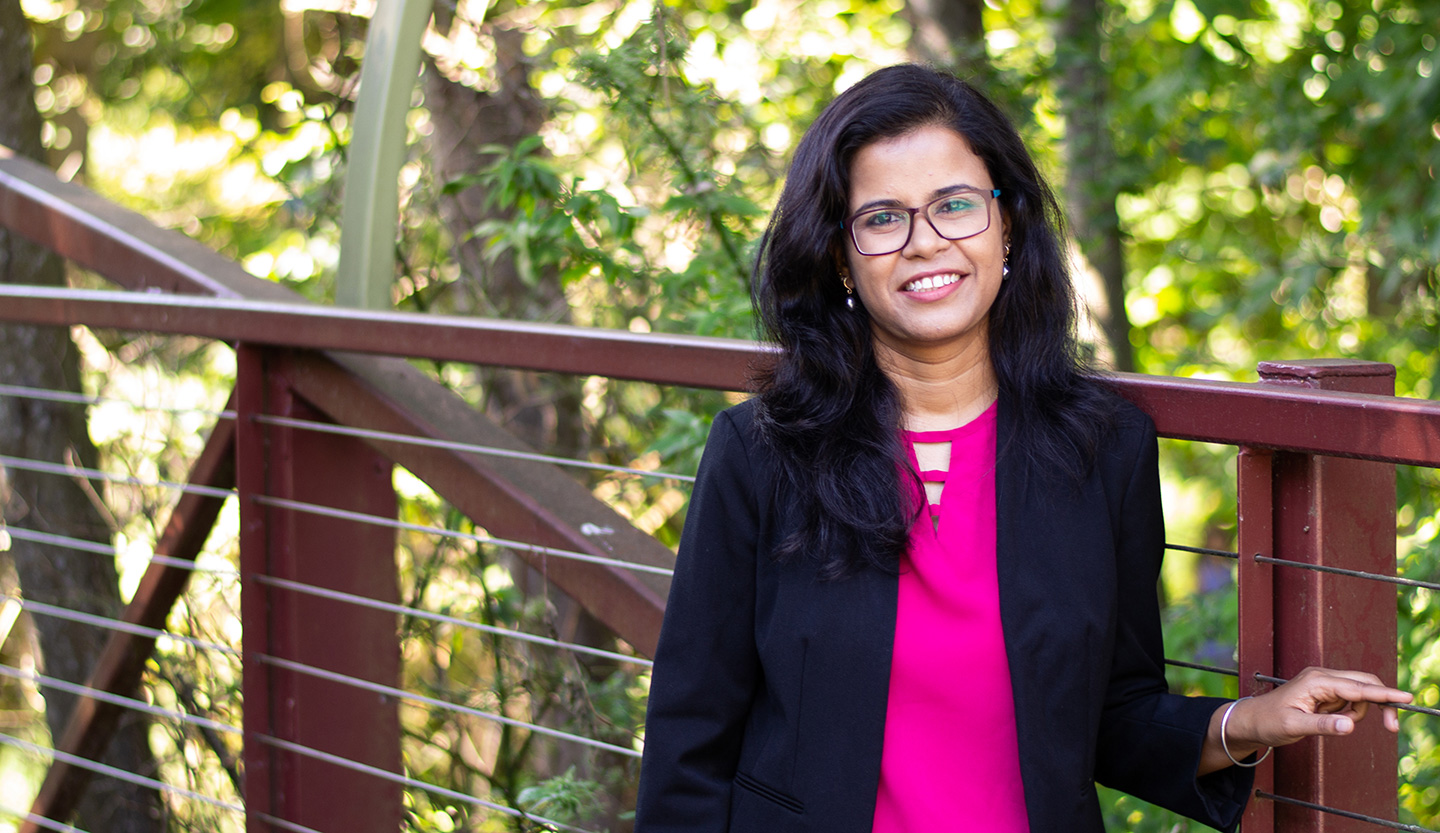Tanu Mitra recently notched a pair of awards for young researchers — one of them a grant from the U.S. Department of Defense, and the other a career honor from a leading conference on social media research.
Mitra, an assistant professor at the University of Washington Information School, won the grant from the military’s Office of Naval Research (ONR) to study influence campaigns in Southeast Asia, focusing primarily on India. Over the next three years, Mitra will lead a team that investigates both the narratives that flow through social media platforms and the effect of influence campaigns on communities.
Mitra said that while disinformation research has commonly focused on Western nations, little is known about influence campaigns in India, where there is a different set of variables to consider. The influence campaigns can originate within the country or from one of its many neighbors; and India has a diverse, multiethnic population.
“In India there are more layers of disinformation or influence operations because there are these layers of race, religion, casteism. Each of those can be factors or vectors driving the influence operation,” she said.
In addition to studying online platforms’ role in spreading disinformation, Mitra is interested in the relationship between the Indian news media and social media, and how information flows through each, particularly when the information is part of an influence campaign around a societal conflict. Her hope is to develop an understanding of the “playbook” behind adversarial influence in the region.
“Some users might be the ‘starters’ of these operations and some might be more ‘flamers,’ or adding more incentive to spreading the operations,” she said, noting that these different roles have been apparent in the data in studies of Western influence campaigns. “I’m hoping we’re going to find something along those lines when working in the Indian Ocean region.”
The ONR’s Young Investigator Program is highly competitive, with $20 million distributed to 38 recipients from 260 applicants this year, including just over $500,000 for Mitra’s project. Its grants fund research that benefits the U.S. Navy and Marine Corps, with a focus on early-career researchers whose prior work shows the potential to achieve significant scientific breakthroughs.
Mitra also was recently named the recipient of the Adamic-Glance Young Researcher Award, given by the International AAAI Conference on Web and Social Media (ICWSM). The ICWSM is a leading forum for research around the theme of social media. It covers topics such as misinformation and fake news, mental health, social movements, and how social media and social networks can provide insight into political polarization.
Mitra was the first recipient of what will become an annual award to a young researcher who has performed innovative research in the area of computational social science. Mitra, who published her first paper at ICWSM in 2012, was chosen for her innovative research on how online platforms are used to spread misinformation, conspiracies and extremist propaganda and their implications in our algorithmically driven online world. Much of her recent research has focused on audits of online platforms and their algorithms to find what makes them susceptible to strategic misinformation.
The ICWSM award is named after Lada Adamic and Natalie Glance, researchers who have made significant contributions to the organization and to computational social science in general.
“I thought that was pretty neat to be the first one to be awarded this,” Mitra said. “The award being named after two researchers whose work I really admire — they were the ones who gave the award over Zoom — that was also a really nice touch. Lada and Natalie’s 2005 political blogosphere paper was one of the first papers which inspired me to start working in the space of social computing and computational science.”
